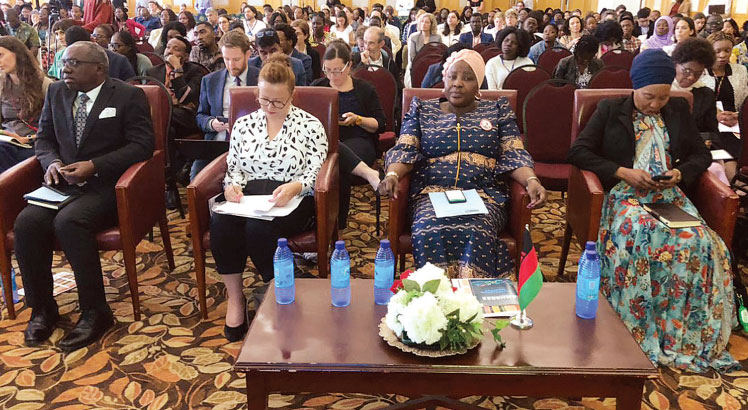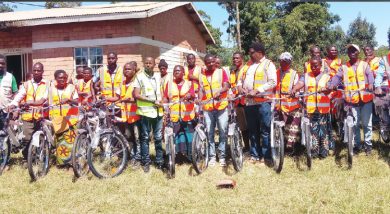Govt urged to use agriculture for wealth creation
British High Commissioner Fiona Richie says agriculture in Malawi must do more than just deliver nutrition and associated health outcomes by creating wealth and helping to generate exports for the country.
She said this yesterday in Lilongwe during the launch of the eighth international agriculture, nutrition and health academy week organised by the London School of Hygiene and Tropical Medicine.
She said with 80 percent of the country depending on agriculture, the sector must be used to create wealth.
Said Ritchie: “Agriculture in Malawi must do multiple things. With this plethora of goals for agriculture, researchers, governments and their development partners need to be very clear about what each intervention aims to do, and not let the perfect be the enemy of the good enough.
“We must also be clear about what is politically feasible and acknowledge the trade-offs.”

of Health Halima Daud during the event
She cited Malawi’s Affordable Inputs Programme (AIP) as a case, observing that it is acknowledged to be underperforming against its stated objectives of improving yields and reducing food insecurity,
“Yes, it needs reform, and we, as development partners, are supporting the government to transition some of the fertiliser beneficiaries over to receiving cash transfers.
“While other design features may be technically optimal, we need to be careful not to pile on too many demands that create inertia.”
On her part, Minister of Health Khumbize Kandodo Chiponda said she was proud of the progress government has made in maternal and child nutrition.
The minister said the country is also on course to prevent a rise in the number of overweight underfive children currently at 4.4 percent prevalence rate; and that it has reduced child stunting from 55 percent to 34 percent; and vitamin A deficiency from 59 percent to four percent in the past 20 years.
“However, inadequate supply of nutritious foods is contributing to increased poor health, leading to acute malnutrition in the form of child wasting.
“These challenges are putting health systems, public finances and personnel already reeling from the Covid-19 pandemic—under unprecedented stress,” said the minister.
Taking his turn, Lilongwe University of Agriculture and Natural Resources vice-chancellor Professor Emmanuel Kaunda acknowledged that millions of people are struggling to access sustainable nutritious diets.
“Malnutrition, undernutrition and overnutrition continues to plague our societies, hampering the well-being and future prospects of individuals, especially children,” he said.
The 8th annual ANH conference, which is being hosted by the Malawi Government in collaboration with the London School of Hygiene and Tropical Medicine, has attracted over 400 health experts attening in-person and virtually.





